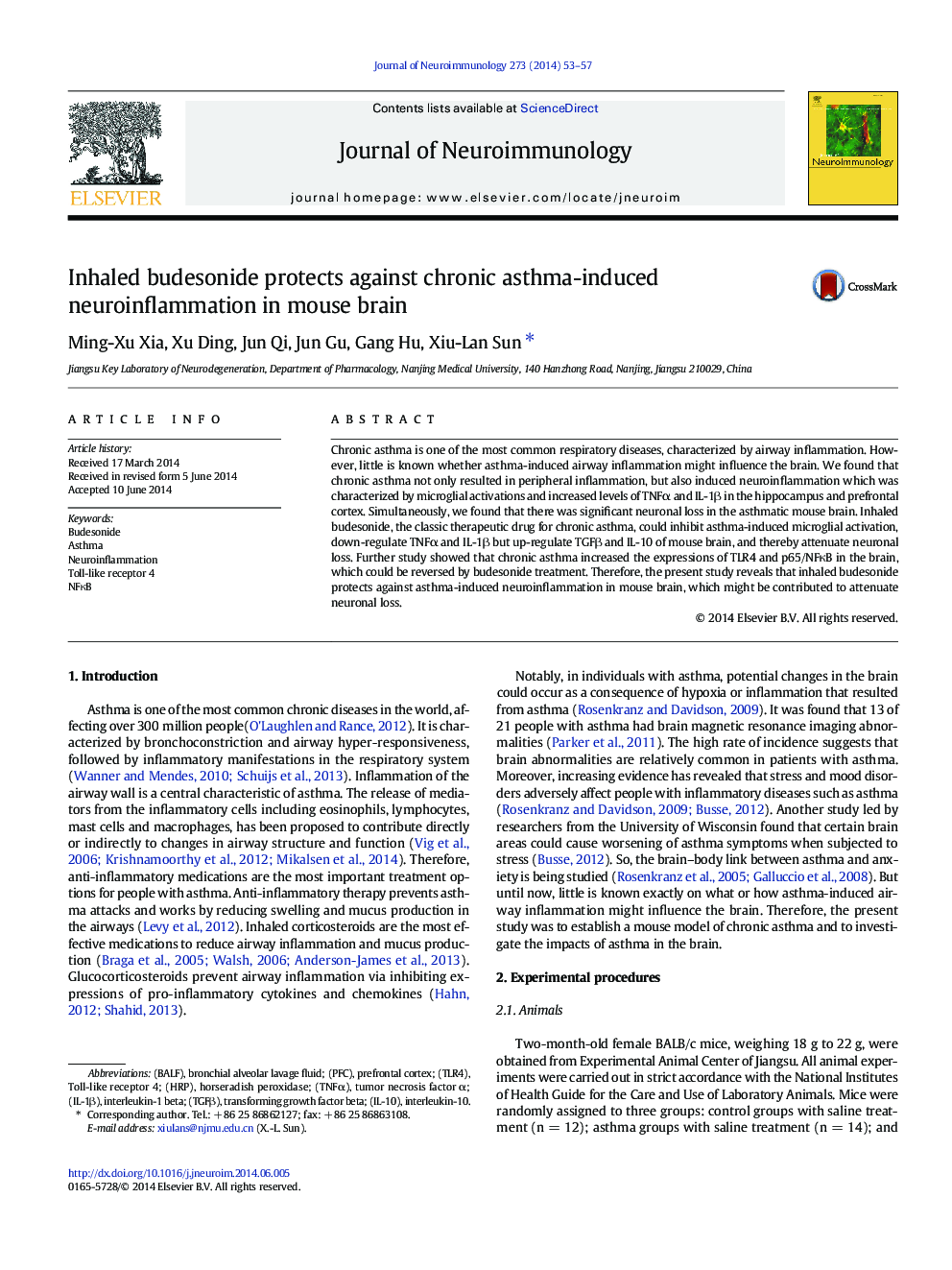| Article ID | Journal | Published Year | Pages | File Type |
|---|---|---|---|---|
| 6020286 | Journal of Neuroimmunology | 2014 | 5 Pages |
â¢Chronic asthma induces microglial over-activation and increases TNFα and IL-1β levels.â¢Inhaled budesonide attenuates chronic asthma-induced neuroinflammation in the brain.â¢Inhaled budesonide inhibits TLR4 and p65/NFκB signal pathway in the brain.
Chronic asthma is one of the most common respiratory diseases, characterized by airway inflammation. However, little is known whether asthma-induced airway inflammation might influence the brain. We found that chronic asthma not only resulted in peripheral inflammation, but also induced neuroinflammation which was characterized by microglial activations and increased levels of TNFα and IL-1β in the hippocampus and prefrontal cortex. Simultaneously, we found that there was significant neuronal loss in the asthmatic mouse brain. Inhaled budesonide, the classic therapeutic drug for chronic asthma, could inhibit asthma-induced microglial activation, down-regulate TNFα and IL-1β but up-regulate TGFβ and IL-10 of mouse brain, and thereby attenuate neuronal loss. Further study showed that chronic asthma increased the expressions of TLR4 and p65/NFκB in the brain, which could be reversed by budesonide treatment. Therefore, the present study reveals that inhaled budesonide protects against asthma-induced neuroinflammation in mouse brain, which might be contributed to attenuate neuronal loss.
